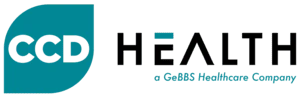How to Optimize Staff Training and Development in Healthcare

84% of employees in the best-performing organizations receive the training they need compared to 16% in the worst-performing organizations. (IBM)
Healthcare centers require a skilled, knowledgeable workforce to (a) provide the best care and (b) help establish or maintain a smooth operational flow.
However, staff training in healthcare is not just about meeting requirements; it’s about fostering a competent, confident, and efficient workforce. A well-trained staff is more capable of handling the complexities of healthcare delivery, leading to improved patient experience, outcomes, and operational efficiency.
And how can centers achieve this excellence? Two ways:
- Comprehensive training programs.
- Ongoing learning.
Both will equip the staff to stay at the forefront of medical advancements and best practices and help the center remain competitive and compliant.
Strategies to Enhance Staff Training in Healthcare Centers
1. Design Effective Onboarding Programs
Effective onboarding programs are essentially what sets staff up for success.
Developing a curriculum that includes detailed training on operational protocols, patient care standards, and the use of healthcare IT systems is essential to design an effective onboarding program. The curriculum should be structured to build new hires’ skills and confidence progressively.
2. Develop a Continuous Improvement System
A continuous education system should include regular training sessions that cover new healthcare regulations, technological advancements, and best practices in patient care. This system should be flexible to adapt to an industry as complex and dynamic as healthcare and supportive of staff’s personal and professional growth.
3. Make Technology an Essential Part of Staff Education
Incorporating technology in education, such as software management, online tools, e-learning platforms, apps, and virtual reality simulations, can greatly enhance the learning experience and make the staff, whether it’s a scheduler or back office, ready to face real situations and provide better guidance to patients.
On the other hand, technology during training can also make knowledge more accessible, allowing staff to learn at their own pace and in a more interactive environment, which can improve understanding and retention of complex operational procedures.
4. Include Leadership and Management Training
Leadership training programs should focus on developing key competencies such as strategic thinking, decision-making, and effective communication. These skills inspire each new or existing employee to perform more effectively and make better decisions.
Techniques for Effective Management Training Practical workshops and seminars can be instrumental in building management skills. These training sessions should include real-life scenarios and role-playing exercises to help managers handle daily challenges, manage team dynamics, and boost productivity.
5. Compliance and Regulatory Training
Training programs must include modules on current regulations such as HIPAA and their implications on day-to-day operations. This is not only to make sure the organization remains compliant but also to protect it against legal issues.
Using a regularly updated training curriculum to reflect new regulations can help keep staff current and compliant. Make sure also to include assessments to ensure that staff understand and can apply the regulations effectively in their work.
6. Performance Evaluation and Feedback
Measurable goals for staff performance are essential for assessing effectiveness and identifying areas for improvement. Performance metrics should be aligned with the organization’s objectives and regularly reviewed to remain relevant.
When evaluating performance, constructive feedback mechanisms, including peer reviews, self-assessment, and manager evaluations, are essential for professional growth and improvement.
5 Ways Effective Staff Training Improves Operational Efficiency in Healthcare
1. Improved Scheduling Efficiency
Specialized schedulers can drastically reduce patient wait times and enhance patient flow through accurate and efficient appointment settings. Training programs using advanced scheduling software, understanding peak load times, average handle time, and practical communication skills empower schedulers to manage appointments more effectively.
2. Enhanced Back-Office Operations
Well-trained back-office staff ensure that these processes are handled efficiently, reducing errors and the time taken to complete each task. Training in the latest healthcare regulations, advanced billing software, and effective coding practices can minimize claim denials and compliance issues, leading to smoother operational flow and reduced operational costs.
3. Increased Staff Productivity
Employees who receive training are more confident in their roles, which enhances their efficiency and reduces the likelihood of burnout. Investing in staff development also fosters a supportive workplace culture, enhancing team cohesion and overall workplace atmosphere.
4. Improved Patient Care and Satisfaction
Trained staff are more adept at handling patient inquiries, managing expectations, and providing the required support efficiently, increasing patient satisfaction.
5. Greater Adaptability to Technological Implementations
Training staff to use these technologies effectively ensures that healthcare centers can quickly adapt to new tools without disrupting operations. From electronic health records (EHRs) to advanced diagnostic tools, ensuring staff are proficient with new technologies is crucial.
Focusing on enhancing scheduling and back-office operations helps healthcare centers not only improve their operational efficiency but also boost profitability and patient satisfaction. As the industry continues to shift towards more tech-enabled operations, the ones that invest in comprehensive and ongoing training for their staff will be better positioned to meet the challenges effectively.
Optimize the efficiency of your back-office and scheduling operations with our specialized Workforce Management and Training Services. Explore and see firsthand how our solutions can help improve your team’s skills, streamline your operations, and elevate patient satisfaction.
